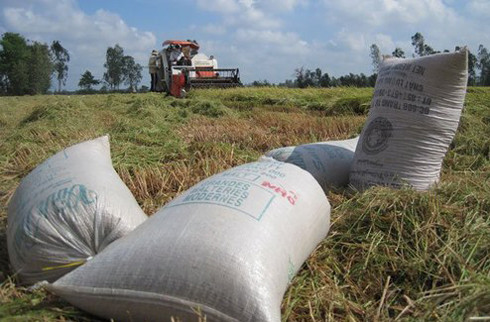Vietnam has a surplus of low-quality rice products.
Experts say this means that consumers and foreign businesses are the ones who benefit the most from export support policies.
At the workshop sharing research results "Rice industry structure and benefits of small producers" organized by the Agricultural Alliance this morning (October 21), the research team analyzed each link in the rice production chain.
Dr. Nguyen Duc Thanh - Director of the Vietnam Institute for Economic Policy Research (VERP), a member of the research team, said that the export market - the final output of rice products - is the decisive link for all issues of the industry in Vietnam.
Meanwhile, export enterprises, for their own benefit, always want to maintain the policy of increasing maximum output for export. This has led to maximum land exploitation to serve increased output, lack of selection of breeds and quality... This threatens the sustainable development of the industry in Vietnam. This reality is happening in almost all localities in the Mekong Delta.
 |
| Vietnam's rice has a surplus of low-quality products. |
"Due to various support policies from the State budget, the Vietnamese rice industry is tending to overproduce medium and low quality products. This means that Vietnamese taxpayers are subsidizing foreign consumers of Vietnamese rice," said Dr. Thanh.
The VERP Director believes that the State should calculate the full subsidy into the export price of rice to reflect the true cost of production and ensure the interests of the people. Exports focusing on increasing prices instead of output will create motivation for businesses and farmers to proactively invest. At the same time, producers need to change technology, choose high-quality purebred rice varieties to increase competitiveness and build a brand for the Vietnamese rice industry.
According to the research team, it is necessary to reduce the number of farmers and accumulate land to increase productivity. Currently, most farmers are struggling with the choice of staying on the farm because their income is not enough to cover expenses, and leaving the farm does not have many opportunities in the industrial and service sectors. "This reveals weaknesses in Vietnam's economic development model when the industrial and service sectors are not enough to create demand for labor, helping farmers to leave the farm easily," the research results clearly stated.
In addition to recommendations on rice prices and improving the position of farmers, the research team also proposed a number of solutions such as abolishing VAT on domestically consumed rice to create fairness between domestic rice distribution enterprises, export enterprises and small traders. In addition, developing microfinance and insurance for farmers helps them to reduce their dependence on input suppliers...
According to VnExpress






